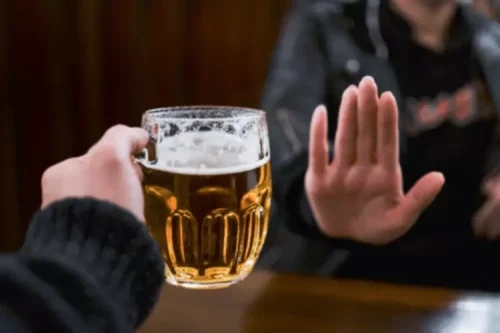
According to the 2015 National Survey on Drug Use and Health, 70.1% of adults in the United States report drinking alcohol during the past year. But this time, I know the answer is that, no, I don’t think so. I see the beauty in the world, with and without drinking, but I love the option of adding some sepia tones to it, when I can. You might recognize some of these “types of drunks” in yourself or your friends. As a result, alcohol leads us to say and do things we wouldn’t under normal circumstances. When drinking alcohol, you might spill secrets, become sexually promiscuous, or become more aggressive than you normally would.

How does alcohol affect cognitive functions when drunk?

The more informed we are, the more mindful decisions we can make. When a person is sober, they have not consumed any alcohol and their physical and mental faculties are functioning normally. Mild intoxication occurs when a small amount of alcohol is consumed, resulting in subtle changes in behavior and perception.
Effects of alcohol
Up to 20% of the alcohol you drink goes into your bloodstream through your stomach. The rest of it gets into your bloodstream via your small intestine. As soon as alcohol passes your lips, some of it gets into your bloodstream through the tiny blood vessels in your mouth and on your tongue.
In your liver
Like other poisons, the body works to rapidly remove it from the blood, which makes a lot of work for the liver and kidneys. Hangovers will only worsen the longer alcohol is used since the brain’s regulation processes will make hangover side effects more pronounced over time. The more common effects happen in the brain as alcohol impacts the way we think and behave. When the body is unable to excrete alcohol, all functions will slow. At this point, with a BAC of 0.35% to 0.45%, it is vital that you receive medical attention or else you will die. Reframe supports you in reducing alcohol consumption and what does getting drunk feel like enhancing your well-being.
- At this point, with a BAC of 0.35% to 0.45%, it is vital that you receive medical attention or else you will die.
- Body weight and metabolism play a significant role in how alcohol affects an individual.
- Like other poisons, the body works to rapidly remove it from the blood, which makes a lot of work for the liver and kidneys.
- Receive encouragement from people worldwide who know exactly what you’re going through!
Or maybe you left a party early last weekend because that beer made you feel sick, when it usually doesn’t. That’s because many different factors play into how quickly you feel the effects of drinking. People with a high tolerance for alcohol may need to drink greater amounts to feel the same effect. As a result, they may drink more heavily, putting them at greater risk for alcohol-related health issues or physical dependence on alcohol.

Effects Of Mixing Weed And Alcohol
You might feel happy, more social and confident, and less inhibited. This is because alcohol stimulates the release of dopamine and serotonin, which are sometimes referred to as your “feel good” hormones. In terms of physical effects the closest feeling I can equate is the feeling of suddenly entering an extremely large space after having been in a small one. When the kava takes hold, to me heroin addiction at least, it feels like the room opens up. My arms, legs, and eyelids become heavy, and clear speech becomes difficult. Research attempts to encapsulate the kava experience such as “…

Alcohol’s Long-Term Effects
- In the short term, alcohol consumption can impair brain function and coordination, leading to slurred speech, blurred vision, and slowed reaction times.
- The duration of drunkenness varies based on several factors, including body size, age, biological sex, and overall health.
- It’s crucial to be aware of your own limits and to avoid exceeding them.
At higher BAC levels, individuals may struggle with decision-making, memory retention, and motor skills. This impairment can lead to risky behaviors or poor judgment during social interactions while under the influence of alcohol. The emotional landscape can shift rapidly under the influence of alcohol. Initially, many people report feelings of happiness and relaxation as their inhibitions fade away.




